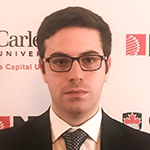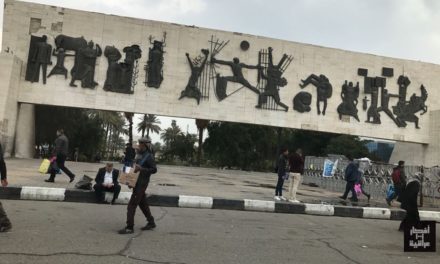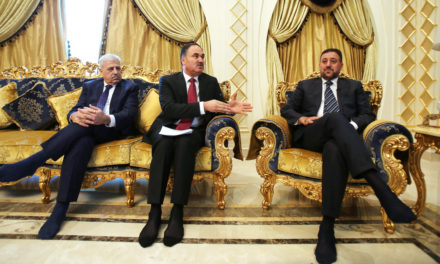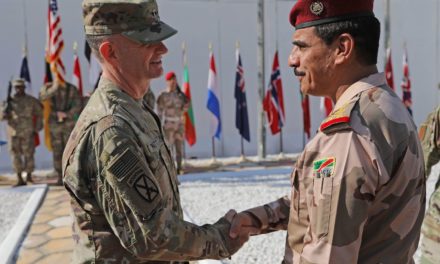The Iraqi cabinet and parliament have confirmed that federal and provincial elections will be held on May 15, 2018 despite the call to postpone elections from various political leaders. Provincial elections have usually been held a year prior to the federal election but due to logistical, economic and political reasons, the provincial elections were postponed a year to coincide with the federal election. This was the first time outside the Kurdistan Region that elections were postponed in the new Iraq, and despite the dangerous precedent it could set, Prime Minister Haider Al-Abadi has ensured they would not be postponed any further. Abadi reminded those pushing for postponement that Iraq has held elections in tougher times and so there would be no excuse now that the country is rid of Da’ish to hold the elections within the mandate set out for the federal election.
Despite Abadi’s insistence to hold elections within the constitutional mandate set out for parliament, there are many political parties that are pushing for the elections to be postponed. Iraq’s former parliament speaker and currently one of three Vice Presidents, Osama Al-Nujaifi, reiterated this desire in his recent visit to Washington. Nujaifi claimed: “It is unreasonable to run the elections under the shadow of the spread of all these weapons or with the displacement of millions of people … This will distort these elections.” These concerns may be sound but come under the disguise of fear of losing significant political support due the lack of popularity amongst Nujaifi’s political party in his home province of Nineveh. Other political parties that share the same sentiment have the same fear of unpopularity after their failures to deliver services and leadership on the provincial level.
The provinces in north and western Iraq: Nineveh, Anbar, Salahddin and Kirkuk have all had a governor or two replaced since the last provincial election. The governors have been either voted out by Iraqi parliament like Osama Al-Nujaifi’s brother, Atheel, was in Nineveh or by the provincial councils themselves like the Nineveh governor that replaced Atheel, Noufal al-Aakou, was recently sacked by in early November. The sacking of the last two Nineveh governors has been revealing in the weakness of their leadership as well as the rampant corruption of these governors. It is no secret why the likes of the Nujaifis would want to delay the elections, they have a stained reputation amongst their populace and have not had the opportunity to rebuild their reputation before the next elections for Iraqis to re-elect them.
Anbar like Nineveh has replaced its previous two governors. Although Ahmed Al-Dulaimi was replaced by the provincial council with Suhaib Al-Rawi after suffering an injury in late 2014, Al-Rawi was sacked by Anbar’s provincial council for corruption and replaced by Mohammed Al-Halbusi in September 2017. Before Al-Halbusi was sworn in by President Fuad Masum as the new governor, the provincial council of Anbar struggled for months to sack Al-Rawi from the Islamic Party of Iraq for multiple reports of corruption.
Other liberated provinces like Salahddin and Kirkuk (half the province of Kirkuk was occupied by Da’ish for over three years) have seen their governors replaced as well. For Kirkuk, the governor was voted out for corruption by the Iraqi parliament before he fled to Erbil and later left the country. The decision to sack the governor was upheld by the Supreme Court and now the Kurdish parties in the provincial council scramble to come to consensus for a new governor while the deputy governor acts as the interim governor.
Corruption and lack of popularity amongst locals is prevalent amongst the north-western provinces but not exclusive to it. The province of Baghdad last year replaced former Sadrist governor Ali Al-Tamimi for corruption and more recently the governor of Basra, Majid al-Nasrawi, from the Islamic Supreme Council of Iraq (ISCI) quit and fled to Iran after allegations for corruption were revealed. In the Kurdistan Region, the province of Sulaymaniyah currently does not have a governor due to a failure of the agreement between PUK and Gorran to split the term of governorship when Gorran won majority of seats in the provincial council in 2014. Due to government institutions built on party foundations, it was difficult for PUK to transfer power to Gorran.
With the mess of many governorships across Iraq being rampant with corruption and mismanagement, it is not surprising to see why many political parties want to delay provincial elections even further. Iraqis have been let down by many of their local governments and it is very possible for political parties to lose out both on the provincial and federal level in 2018 when the provincial and federal elections are held simultaneously with each other. The provinces mentioned have witnessed changes in governors, but the rest of the provinces are also faced with the same hardships of corruption and mismanagement. A lot of times, the blame for efficiency in provinces is pinned on the locals when in reality it is their elected officials letting them down. It is important that not only are these governors held accountable for their faults but replaced with credible candidates come May 2018.

Hamzeh Hadad
Hamzeh Hadad is an Iraqi writer and commentator. He is currently a Master of Arts candidate at the Norman Paterson School of International Affairs.










